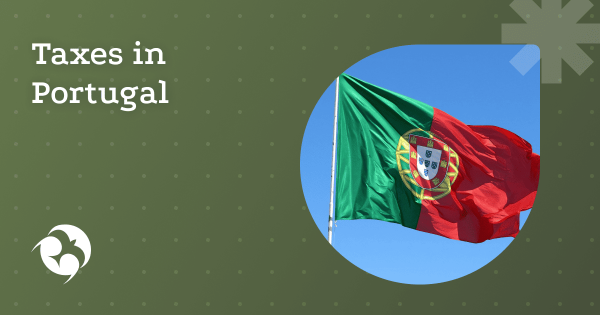The latest information from official sources will guide Russians through the principles of the current tax system, new laws, and benefits for individuals and legal entities, helping to minimize expenses.
How does the tax system work?
The economy, competitive interest rates, foreigner-friendliness, digital nomad visas, and incentives attract relocates and businessmen to the country. Depending on the taxpayer’s profile, they are required to pay dues from their profits at set rates.
People who come here on a general basis and wish to stay to work after a stay of 183 days can become tax residents in a short period. This law also applies to Russians who have become homeowners. To automatically change status, it is enough to write an application indicating the address or place of registration and submit it to the relevant service.
The body of laws for immigrants is periodically revised. Until the beginning of the year, NHR status was required to obtain residency. It allowed payment of fixed taxes at 20%, while non-residents were levied at 25%. Last November, the Portuguese parliament abolished the Non-Habitual Residency incentive program but did not strip holders of NHR status. It preserved the preferential tax rate for them for 10 years.
Newly arrived Russians in the country can now obtain status under the old rules until the end of the current year under certain conditions. These apply to relocates with employment contracts signed with Portuguese companies, students coming for study and internships. The relaxation concerns immigrants with rental agreements signed before October 10 of the last year.
Foreign citizens need to understand the difference in charges in the mainland country and on the island of Madeira. In the autonomous region, to attract investors, there is an MIBC regime with a reduced corporate rate of 5% for specific activities. For former residents with an L-XNUMX type visa who decide to return to the mainland or island within 5 years until 2026, a rate of 50% applies to income up to €250,000.
What taxes do freelancers pay?
Foreigners, after confirming an income of €3,280, with savings of €9,840, are issued freelancer visas. Short-term/long-term Digital Nomad visas allow becoming a temporary resident and resident. The residence document opens up the opportunity to travel through the Schengen countries and become a citizen within 5 years. Details on obtaining a digital nomad visa can be learned from a review article.
Nomads are subject to the tax legislation for the self-employed. After registration and obtaining an identification number (NIF), they bear financial responsibility and pay federal dues on time. Expats are taxed on income (IRS). The amount is calculated on a progressive scale ranging from 14.5 to 48%.
To determine the percentage, the fiscal authority relies on the quarterly income preceding the reporting period. If the annual turnover is below the threshold amount, freelancers are exempt from payment. Since 2021, it has been set at €12,500, previously not exceeding €10,000. The rates are detailed in the IRS Tax Code. Freelancers are also provided for social contributions under a simplified system. They pay a percentage of 70% or 20% of income. Employed workers contribute 11%.
Taxation of Individuals
Country residents pay taxes on all income at a fixed rate, while non-residents only on local sources of profit at 25%. Types of federal charges include:
- Income tax on profits;
- Capital gains;
- Municipal on real estate transactions;
- On the transfer of ownership status and inheritance;
- Stamp and social.
The charge on capital gains for private commercial structures is 28%. When selling assets not listed on the stock exchange, the percentage is taken only from the income half. After a real estate transaction, non-residents make payments from the entire capital, while foreigners with a tax profile only from half. When selling an apartment to improve living conditions, no duty is levied. If the price is above €600,000, owners of luxury apartments pay 0.4%, legal entities – 0.7%.
The charge for transferring ownership rights does not exceed 6.5%. Outside the city, they charge at a rate of 5%. The stamp varies from 0.8 to 10%. It is paid when buying or gifting an apartment, selling a company share. The percentage in the city budget for municipal services is within 0.3-0.8%. The size depends on the value and type of the object, and the geography of the region. It is deducted by companies and property owners.
Income Tax
Payments are calculated on a progressive scale based on salary, profits from individual activities, rental income, interest earnings, royalties, pensions, and savings in private funds. The rates depend on earnings. The lowest rate, 14.5%, applies to incomes up to €7,112. As profits increase, tax assessments grow geometrically.
| Income in euros | Rate |
| 7 02-11 622 | 18% |
| 11 623-16 471 | 23% |
| 16 472 -27 145 | 26,5% |
| 27146 -39 794 | 37% |
| 39 795 – 51 995 | 43% |
| 51 996 – 81 998 | 45% |
| 8 999 and above | 48% |
In 2024, an addition to personal income tax or “Solidarity Contribution” ranges from 2.5-5% and is calculated separately. For a total income of €80,800, the additional percentage is only taken from excess profits. €170,000 is taxed at 2.5%, and the remaining part at a double rate. To prevent double payments, Portugal has legal agreements with 81 countries, including Russia.
The amounts payable are significantly reduced by preferential rates. When calculating the rate on incomes, the fiscal authority considers the percentage of the taxable portion. Factors influencing the assessments include:
- Total income;
- Marital status;
- Number of dependents;
- Office space rental payments;
- Business expenses.
Deadlines and Penalties
For employed citizens and pensioners, income tax is withheld when salaries are paid, with no tax levied on amounts under €4,104. However, they must file declarations under common law with employers. Spouses and civil partners are allowed to fill out joint or separate returns, where each indicates half of the earnings.
The fiscal year runs from January to December 31. Taxpayers file documents from April to June for the previous period. Data processing takes a month. If submission deadlines are not met, a fine ranging from €200 to €2,500 is imposed, with mandatory payment by August 31. Late payers incur a 10% penalty on the amount, but no more than €55,000. Exceptions apply only to new residents.
Taxation of Legal Entities
Companies are assigned a tax status provided their main office is located within the country. The corporate tax rate is 25%. They contribute 21% of net profits to the Portuguese economy. For small and medium-sized businesses involved in agricultural/industrial production, it does not exceed 16%.
Profit tax is levied at federal and municipal levels. Regional rates apply only in Madeira and the Azores. Additional percentages for super profits are taxed as follows:
- €1.5-7.5 million – 3%
- €7.6-35 million – 5%
- Above – 9%
This law mainly concerns corporations with representations in the country. Non-residents without offices in the territory receive dividends from various sources at 25%. Social contributions to the treasury depend on the company’s status: 22.3-23.7%. Unlike individuals, companies dealing in goods and services are charged VAT from 6-18%, depending on the type of commercial activity and the place of registration. For turnovers up to €6.5 million, value-added tax is paid quarterly. Profit taxes are paid in installments in July, September, and at the end of the year. Reporting is submitted by the end of May after the amount is approved at the shareholders’ meeting.
The country’s interest in economic development necessitates providing foreign investors with incentives to reduce financial burdens under conditions of:
- Investing funds in specific regions;
- Conducting research;
- Development (R&D);
- Investing in education and healthcare.
Taxes for Controlled Foreign Companies (CFC)
Rules for corporate legal entities without residency apply as CFC. A structure is considered controlled if the business owns a quarter of the capital, rights to income and assets, or if a part of the staff are residents. Incomes are taxed at half the tax rate if the company belongs to an EU/EEA country and conducts commercial activities. The law helps control 25% of undistributed profits from dividends. The information provided is general and may be supplemented or changed during the year at the federal/regional level according to legislation.
Answers to some questions
What is the VAT rate in Portugal?
The General Directorate of Taxes prepared a letter in January this year with changes in the value-added tax. It outlines the procedure for calculating percentages on certain groups of goods, food supplies. Overall, the rate is 23%. For companies engaged in agricultural production and certain essential goods, it is reduced to 13% and 6%.
What benefits are available?
Portugal strives to develop entrepreneurship and innovation. Start-up Visa and Digital Nomad Visa programs include tax incentives and citizenship acquisition. Residents with NHR status benefit when transferring property to others, exempt from duties when gifting or handling inheritances.












